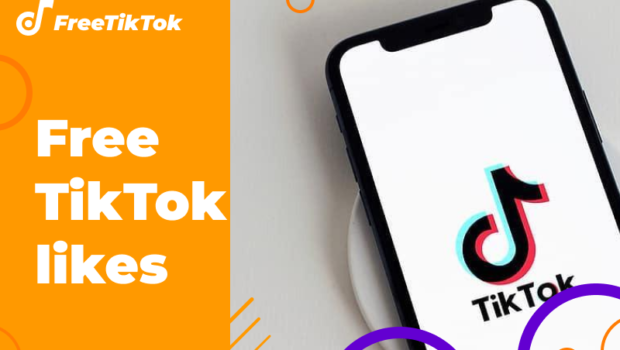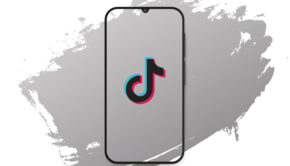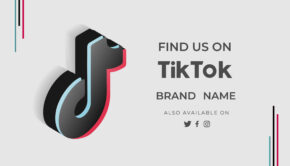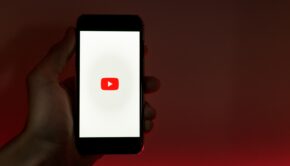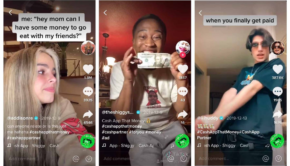TikTok phenomenon and US restrictions
The President of the United States, Donald Trump, notified everyone that he would forbid TikTok except if his US operations were purchased by an American corporation. But how, in such a short period of time, does an app that brings millions of people together end up threatening national security?
The genesis of TikTok is much more distinct than the legendary start-up stories we are all used to hearing about. This was not an empire built by a group of friends from scratch that came up with a brilliant idea in dad’s basement. In reality, TikTok began as 3 separate applications.

The first application was entitled Musical.ly, which was released in Shanghai in 2014. This application had good, solid US business connections and a wide audience.
Chinese tech giant ByteDance introduced an analog app called Douyin in China after two years. Over 100 000 users were interested in Thailand and China. Eventually, ByteDance was determined that they were onto something fantastic and decided to grow under another brand named TikTok. In 2018, it purchasedMusical.ly and started to grow worldwide with TikTok.
The secret of success for TikTok is the music used in videos and the incredibly efficient algorithm that absorbs the type of content users want to see much quicker than other applications. Users can select between lip-sync and a broad database of filters, songs, and movie scenes. Those who want to become popular faster, they usually buy TikTok views.
Some major trends have circulated on TikTok, such as “Bored in The House” by Curtis Roach or “Old Town Road” by Lil Nas X.
A large proportion of users of TikTok spend a lot of time on the For You Page. This is where the algorithm does its magic and positions users’ content waiting for what they want based on the content they have already watched and related to. No matter the number of followers the content creator has, if the TikTok video is successful, it will be noticed. However, getting likes and follower on a video in very essential to boost your performance. Therefore you may read more about the tiktok auto liker tool to get more likes on your post.
TikTok has been growing quite steadily since its launch, and both apps had already accrued 1 billion downloads globally in the summer of 2019 and 500 million users were involved.
The speedy creation of TikTok caught the attention of numerous politicians. Although the allegations are fuzzy, India and the USA are alarmed that TikTok stores private user data that could be used by the Chinese Government for surveillance. Every large Chinese corporation has been alleged to have a private “cell” ruled by the Communist Party of China, with many of its members designated to collect confidences.
In 2019, after withdrawing the application from app stores, India banned TikTok because they accused TikTok of being used to circulate pornography, but not long after, the decision had been annulled. They once again blocked TikTok with plenty of other Chinese apps in the summer of 2020, alleging TikTok was stealing and transmitting data from users.
At the end of 2019, the US government created a national security review of the app after a Democrat and a Republican representative reported it posed a risk. US Secretary of State Mike Pompeo stated that, among a number of other Chinese applications, TikTok was giving data to the Chinese Communist Party.
Of course, it is important to remember that relations between these countries are strained, with the United States opposing recent security regulations in Hong Kong in conflicts with China over trade, Indian and Chinese forces engaged in border conflicts, and the United Kingdom. Exactly what TikTok does with the information is controversial.
We know from its privacy policy that a huge amount is collected, such as:
Videos that are shared and commented on
– Location data
– Type of phone and software
– Patterns of keystrokes as people type.
It was also discovered that the users’ copy-and-paste clipboards were read, but hundreds of other apps, including Reddit, LinkedIn, and the BBC News application also did that and nothing suspicious was found. Most proof indicates to the data collection of TikTok being similar to other social networks like Facebook that are eager for information.
Nevertheless, unlike its US-based competitors, TikTok says it is prepared to provide an unparalleled degree of accountability to ease some of the doubts about its information gathering and distribution.
The worries, though, are not just about what information is collected, they are also more abstract – can the Chinese government force ByteDance to hand over information?
The same questions about Huawei have been posed. In China, the 2017 National Security Law mandates any agency or individual to “support, assist and co-operate with the state intelligence work”. Nevertheless, huge Chinese companies such as Huawei have continuously claimed that if this situation ever occurred, they would absolutely say no.
The threat of censorship, or of the app being utilized to manipulate public debates, would be another issue. TikTok is among the first outlets to share content on social activism where most young people would come to.
TikTok supported #BlackLivesMatter as a movement in May, but there was concern that black creators’ content was being censored and that protest-related hashtags were being hidden. TikToks algorithm has been questioned for the way content is picked on other occasions.
ByteDance claimed that these rules had been terminated and that Beijing was independent of all limitations.
For under 25-year-olds, TikTok has appeared as a meeting spot, whereas applications such as Instagram and Twitter are mostly considered as being for older users. If you want more TikTok views buy Tik Tok views on https://freetiktok.com/free-tiktok-fans.
But the prospect of a ban feels like a setback for those who use TikTok to make their message heard.
Although, many users, as it seems, will hold on to TikTok till the last day, if that day ever arises.

